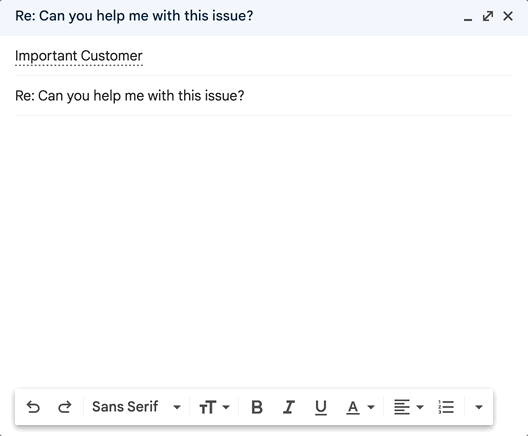How to Foster Employee Accountability in the Workplace
Create a productive work environment and inspire employee accountability with these tips.
Employee accountability is a fundamental concept that permeates the structure of every successful business. This principle dictates that each individual within an organization should take responsibility for their actions, decisions, and the subsequent results in their professional sphere.
This means delivering on tasks and obligations, meeting deadlines, and being answerable for any shortcomings or mistakes. But why is this principle so vital? The answer lies in the domino effect that accountability triggers.
Employee accountability not only ensures the efficient completion of tasks but also enhances the overall productivity and performance of an organization.
In this article, we'll cover everything you know about employee accountability including why it's important and how to foster it in the workplace today.
What Is Employee Accountability?
Employee accountability refers to the principle that individuals are responsible for their actions and decisions in the workplace. It's about being dependable, making sure tasks are completed on time, and owning up to any mistakes that occur along the way.
Moreover, it's about employees understanding the impact of their work on their team, the company, and the customers.
Accountability is more than just getting the job done; it's about being transparent and honest about the process, and that includes facing any potential failures head-on.
Simply put, it's an intrinsic commitment to delivering quality results.
Why Is Employee Accountability Important?
The importance of employee accountability extends beyond the simple completion of tasks. First, it ensures high standards of work as individuals understand they'll have to answer for their output.
Second, accountability fosters a culture of trust and respect. When everyone is accountable, there's less finger-pointing and more focus on problem-solving.
Furthermore, accountable employees are more engaged and committed to their work. They are likely to take ownership and display initiative, which often leads to increased productivity and innovation.
Finally, accountability plays a key role in personal growth and development as it encourages employees to learn from their mistakes and continuously improve.
Join thousands of teams who are using Text Blaze templates.
How Does Employee Accountability Impact A Company?
Employee accountability holds a significant place in any organization due to its considerable impact on various aspects of a company's operations. Here's how:
Improved Performance: High levels of accountability directly translate into better work quality and improved performance as individuals feel answerable for their output.
Increased Productivity: Accountability fosters a sense of ownership, which in turn boosts productivity levels. Employees who take responsibility for their tasks tend to be more diligent and efficient.
Enhanced Customer Satisfaction: When tasks are completed efficiently and to a high standard, customer satisfaction invariably improves. This can also lead to increased customer retention and loyalty.
Improved Team Communication: When employees are held accountable for their work, they are more likely to communicate with their coworkers and managers about it. This helps boost team communication and keep everyone on the same page.
Positive Company Culture: A culture of accountability cultivates trust and cooperation among team members. This positive environment can significantly enhance employee morale and motivation.
Less Conflict: Accountability can help to minimize workplace conflicts. When everyone owns their tasks and responsibilities, there's less finger-pointing and more problem-solving.
This far-reaching impact demonstrates why employee accountability is essential to a company's success.
Factors That Affect Employee Accountability
Several factors can influence employee accountability. First and foremost is clear communication of expectations. Employees need to understand what is expected of them, both in terms of their specific roles and the company's overall goals.
Read on to learn how to improve your personal and team communication.
Second, a supportive and open environment is crucial. Employees must feel safe to express their ideas, challenges, and concerns without fear of retribution.
Third, recognition of good work and constructive feedback on areas of improvement significantly affect accountability. Employees who feel their efforts are recognized and appreciated are more likely to take responsibility for their work.
Finally, opportunities for growth and development inspire employees to be more accountable. They're more likely to take ownership of their work when they see it as a stepping stone towards their personal career goals.
How to Create Employee Accountability
Set Clear Expectations
Make sure your employees understand their roles and responsibilities. Use SMART (Specific, Measurable, Achievable, Relevant, Time-bound) goals to provide clarity and direction.
When your expectations are clear and understandable, employees are more likely to take accountability for their work.
Foster Open Communication
Encourage a culture of transparency and open dialogue. Employees should feel comfortable discussing both successes and failures.
If you ensure that everyone feels that they can both speak freely and be heard when they speak, they will take pride and accountability.
Provide Regular Feedback
Regular, constructive feedback is key to nurturing accountability. Recognize good work and provide helpful suggestions for improvement.
Read on to learn how to personalize feedback to employees.
Promote Personal Growth
Offer opportunities for personal and professional development. This shows employees that you're invested in their growth and success, encouraging them to take ownership of their work.
Opportunities for development and promotion are some of the best motivating factors for employees. Offering these has a variety of positive effects for your workplace.
Lead by Example
Ultimately, employee accountability starts with the person at the top. If the person in charge takes accountability and leads by example, your team will as well.
As a leader, embody the accountability you wish to see in your team. This sends a powerful message about the importance of taking responsibility for one's actions
Create Logical & Effective Workflows

Creating logical and effective workflows helps your employees make the right decision every time, which improves employee accountability.
To create workflows that work for your team, use Text Blaze. With Text Blaze, you use keyboard shortcuts to insert dynamic text templates anywhere online.
Whether you are giving a sales demo, routing support tickets, or troubleshooting issues, Text Blaze helps you do it faster.
With Text Blaze, you can:
- Boost compliance with standard operating procedures & decision trees to help guide your employee's decision-making.
- Spend less time on mistakes and misroutes by ensuring everyone stays on the same page.
- Improve communication and make sure your team gets the right message every time.
- Create interactive response templates that are available anywhere you work online.
This template is an example of how you can use Text Blaze to create decision trees that help your employees make accurate, informed decisions.
{error: Forward the request to Support for them to actively troubleshoot the request}{elseif: q1=no}
If this a prospect or a closed customer? {formmenu: ; prospect; closed customer; name=custtype}
What is the customer's question about? {formmenu: ; general functionality; integrations; billing; renewal; setting up specific features; additional demo request; name=topic}{endif}{if: q1=no and topic="general functionality" and custtype="prospect"}
{error: Sales reps are responsible for these types of questions for prospects, so please reply to them directly. If you need assistance crafting the message or need clarification about the functionality in question, engage support.}{elseif: q1=no and topic="general functionality" and custtype="closed customer"}
{error: Because this is a closed customer, loop in their Customer Success Manager (CSM) for assistance. If you're not sure who that is, check the Account in Salesforce.}{elseif: q1=no and (topic="integrations" or topic="setting up specific features") and custtype="prospect"}
{error: This type of request is handled by Solutions Engineers. Check Salesforce to see which SE is assigned to this account, and circle them in.}{elseif: q1=no and (topic="integrations" or topic="setting up specific features") and custtype="closed customer"}
{error: Because this is a closed customer, loop in their Customer Success Manager (CSM) for assistance. If you're not sure who that is, check the Account in Salesforce.}{elseif: q1=no and topic="billing" and custtype="prospect"}
{error: Sales reps are responsible for these types of questions for prospects, so please reply to them directly. Ask your manager for guidance and pricing approval where required.}{elseif: q1=no and topic="billing" and custtype="closed customer"}
{error: Customer Success Managers are responsible for these types of billing questions. Involve the CSM for assistance. If this becomes a negotiation, they may ask you to step back in for further assistance.}{elseif: q1=no and topic="renewal"}
{error: Customer Success Managers are responsible for renewals. They may ask you to stay involved, but circle in the CSM to lead this process.}{elseif: q1=no and topic="additional demo request" and custtype="prospect"}
{error: Sales reps should run all demos for prospects, so please set up time with the customer to run them through the demo. If you expect there to be technical deep-dives required, circle in the Solutions Engineer. You can see which SE is assigned to this account in Salesforce.}{elseif: q1=no and topic="additional demo request" and custtype="closed customer"}
Is this demo request for more users under the existing use-case, or would this be for a new group of stakeholders / a new use-case? {formmenu: ; existing use-case; new use-case; name=demotype}{endif}{if: q1=no and topic="additional demo request" and custtype="closed customer" and demotype="existing use-case"}
{error: Customer Success Managers are responsible for demos of this type. They may ask you to stay involved, but circle in the CSM to lead this demo.}{elseif: q1=no and topic="additional demo request" and custtype="closed customer" and demotype="new use-case"}
{error: For potential expansion, the Sales rep should run this demo. Include the Customer Success Manager for the account. Also bring in the Solutions Engineer if a technical deep-dive will be required. The CSM and SE for the account are both listed in Salesforce.}{endif} {endnote}
Join thousands of teams who are using Text Blaze templates.
Conclusion
Creating a culture of employee accountability in the workplace is no small feat. It's a process that requires clear communication, transparency, continuous feedback, personal growth opportunities, and exemplary leadership.
When done right, it leads to improved performance, a positive work culture, and overall company success. As a business owner, nurturing accountability should be among your top priorities. After all, a team that takes ownership of their work is an unstoppable force.
Use Text Blaze to streamline workflows, improve employee decision-making, and boost employee accountability.




